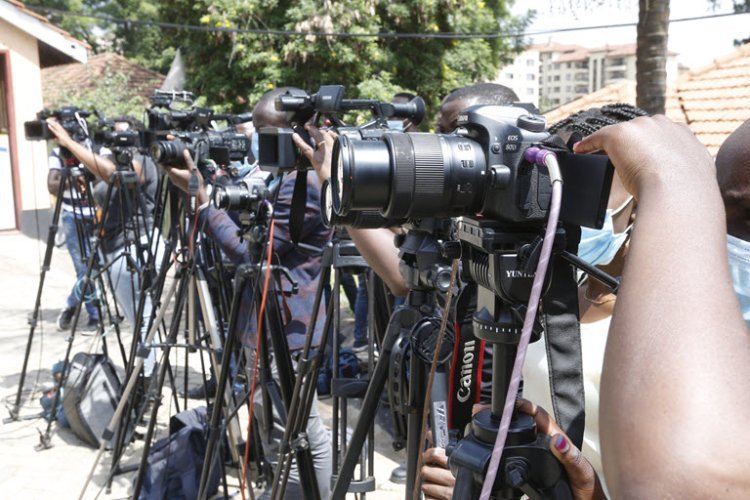How New Directive Could Lock Out Unregistered Kenyans From Govt Jobs
The new directive will seek to demand that graduates seeking to land government jobs be required to sign up in statutory and professional bodies in their fields of study before making their job applications.

All Kenyans working in government jobs will soon be required to register with statutory bodies and professional bodies before they can be allowed to work in state agencies.
According to a 20-page guideline for the development and review of human resource management published by the Public Service Commission (PSC) on Thursday, August 10, state agencies, as well as universities, will have to compel civil servants to go through statutory registration before they can be considered.
Among the statutory bodies in the country include the Engineers Board of Kenya, the Media Council of Kenya (MCK), and the Law Society of Kenya (LSK) among others.
The new directive will seek to demand that graduates seeking to land government jobs be required to sign up in statutory and professional bodies in their fields of study before making their job applications.

Graduands attend a graduation ceremony organised by a Kenyan University. /PHOTO
It thus means that graduates will be hit with extra costs to cover registration and annual renewal fees to the statutory bodies as they are already having to deal with requirements such as HELB and EACC clearance certificates which come at a fee.
The directive contained in the guideline comes amidst plans to have some professions in the country be regulated for the purposes of deterring unqualified persons from venturing into the industries by way of demanding that they undergo training and registration into a professional body before getting a job in that field.
One such example is the Public Relations (PR) industry, which on Tuesday, August 8 received a shot in the arm after the Cabinet approved the Institute of Public Relations and Communication Management (IPRAC) Bill, answering calls to have the PR industry in Kenya regulated.
The bill which was first drafted in 2019 will be sent to Parliament for debate and was hailed by the Public Relations Society of Kenya (PRSK) as a significant milestone for the PR profession, marking a major step towards professionalizing the PR and communications industry in Kenya, which has of late seen new entries from the Kenyan media space.
"Once enacted into law, IPRAC Bill will provide a framework for regulating and standardizing the practice of public relations, thereby ensuring ethical conduct and maintaining professional standards, which will enhance the credibility and reputation of our industry. IPRAC Bill will position public relations practitioners as trusted advisors and strategic partners in driving organizational success.
"As a society, we are committed to actively engaging in the legislative process and advocating for the inclusion of provisions that uphold the highest standards of professionalism and ethics. We will work closely with the relevant stakeholders to provide input and support the development of robust regulations and guidelines that will govern our profession," PRSK stated in part.
The proposed bill however sparked a silent cold war between PR professionals and journalists, with the latter accusing the former of threatening to drive a wedge between PR and the media in the country, the latter going through a crisis of sorts coupled with financial troubles leading to mass firings.
Speaking to Viral Tea, a number of PR experts, however, argued that the bill in its early stages, if passed, may not force employers to demand that those joining their PR divisions have accreditation as a prerequisite.
"They may in future force those they intend to hire to have accreditation. That's how many may be locked out since they will have to undergo tests," one expert told Viral Tea, adding that there may be charges for those seeking accreditation for PR.
For a journalist for instance already paying for accreditation through the Media Council of Kenya (MCK), they risk footing another amount to be accredited to PRSK, and with the current cost of living deterring Kenyans from unnecessary spending, media professionals, including practitioners, may shy away from joining PR.







